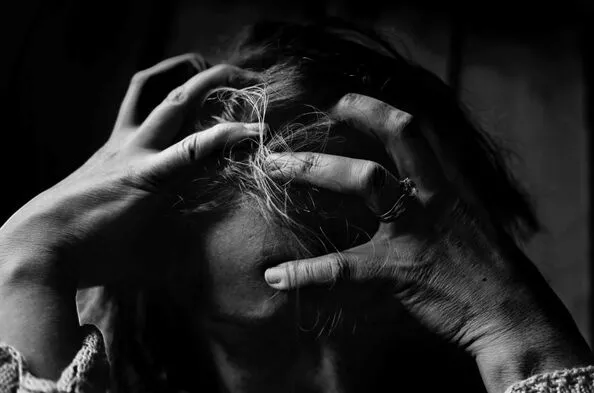If you’ve been diagnosed with post-traumatic stress disorder (PTSD), it’s common to feel depressed. You may even have suicidal thoughts. However, there are ways to cope with your depression, as well as your PTSD symptoms.
As many as one-third of individuals who have experienced trauma eventually experience suicidal thoughts. And, the risk of suicide is twice as high among people with PTSD compared to those without it.
Whether from combat or sexual violence, trauma increases the risk of developing PTSD. Recent research estimates that, in a given year, between 11% to 20% of army veterans serving in operations in Iraq and Afghanistan have PTSD. As many as one in four veterans seeking care at VA medical centers screen positive for PTSD.
PTSD itself is not a risk factor for suicide, but suicidal thoughts are more common among individuals with mental health disorders, including PTSD. The link between mental illness and suicide isn’t clear, but researchers believe that the two may be related to how the brain processes emotions and how certain chemicals function within the brain. As a result, it may be difficult to properly regulate emotions or stress management, which leads to feelings of hopelessness.
Suicidal Ideation in Post-Traumatic Stress Disorder (PTSD)
One of the most distressing symptoms of PTSD is suicidal ideation.
Suicide ideation is a common symptom of PTSD. To be diagnosed with PTSD, an individual must have experienced or witnessed a life-threatening event. And they must also exhibit at least;
- One re-experiencing a symptom (such as flashbacks),
- Three avoidance symptoms (such as avoiding things that remind you of the trauma), and
- Two hyper arousal symptoms (such as feeling tense and always on guard).
While depression is not a part of the diagnostic criteria for PTSD, it does often occur in conjunction with the disorder. Anxiety and Depression Association of America (ADAA) reports that many people with PTSD suffer from depression.
What Are Your Options?
You can talk through your feelings in therapy. A therapist who specializes in PTSD or depression treatment can help you figure out how to manage your symptoms. They can also help you learn how to cope with suicidal thoughts and feelings. Some types of therapy that might help include:
- Cognitive-behavioural therapy (CBT): This type of therapy helps you change negative thought patterns and behaviours into positive ones.
- Exposure therapy: If a traumatic event is behind your PTSD, this type of therapy can help you cope with its effects by facing them head-on.
- Prolonged exposure (PE) therapy: PE helps you deal with the trauma that leads to your symptoms by talking about it in detail again and again until the memory is no longer frightening.
If you’ve recently been diagnosed with PTSD, or you’re dealing with the grief of losing a loved one to suicide, you may be feeling like you don’t know where to turn for support. People with PTSD and family members of those who have lost loved ones to suicide can access resources.
For those with PTSD:
- Research local support groups and organizations
- Reach out to family and friends
- Involve yourself in your community
- Don’t be afraid to talk about your experience
- Remember that you’re not alone
For those who have lost someone to suicide:
- Look into suicide survivors’ support groups (American Foundation for Suicide Prevention)
- Read other survivors’ stories (Mental Health America)
- Learn about how others cope with their loss (Suicide Awareness Voices of Education)
Take Away
People with PTSD may experience thoughts of suicide because they perceive their lives as being out of their control or believe that their PTSD symptoms will never improve. These thoughts may intensify when experiencing triggers such as disruptive memories. Suicidal thoughts can be overwhelming and frightening. You must make your safety a priority and seek help immediately if you get suicidal thoughts or you might harm yourself.
Before you reach extremism, it is crucial to consult with a therapist. He will give you the best solutions to cope with negativity and suicidal thoughts.
For more information about Mental Health Conditions. Visit our Mental Health Library page. To understand and cope with your psychological symptoms, get help from our Top 10 Psychiatrists, Psychologists, and Therapists who are known for providing the best mental health treatment and psychiatry services. To book an appointment please call us at (800) 457-4573 or submit an appointment request.



Leave a Reply